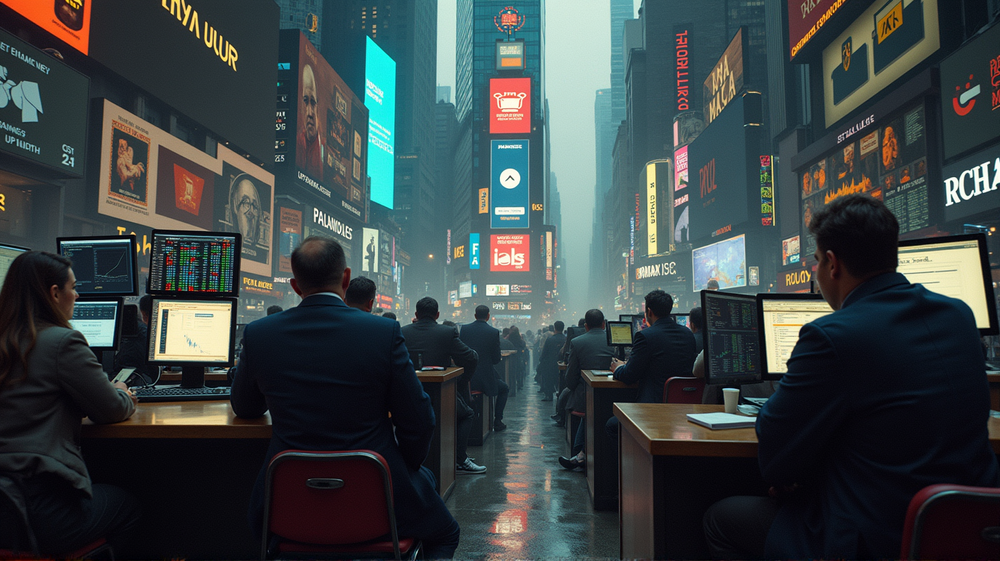Wall Street's Turmoil: Inflation and Tariffs Cause Market Chaos
The financial heart of America shook on Friday as soupy clouds of uncertainty blanketed Wall Street, leading to widespread jitters and anxiety. This latest episode in a year marred by market turbulence is catalyzed by President Trump’s aggressive tariff schemes and burgeoning inflation fears. But what’s driving this seismic shift and what consequences lie ahead?
The Numbers Speak
Friday saw the Dow Jones Industrial Average hemorrhage 758 points, a 1.8% decline that sparked widespread panic. The S&P 500 wasn’t spared either, erasing 2% of its value, while tech-heavy Nasdaq suffered even more, with a steep 2.8% plunge. These numbers are more than just statistics; they signal a broader unease gripping investors, who are bracing for the impact of Trump’s tariffs and elevated inflation rates.
Tariffs: The Double-Edged Sword
President Trump’s announcement of a towering 25% tariff on all imported vehicles and auto parts marks a risky gamble on trade policy. Consumers are anticipated to bear the brunt, potentially shelling out thousands more for cars. As the dust settles, Oxford Economics provides a sobering perspective: “The recent U.S. stock market correction appears to have been partially triggered by investors realizing that Trump may follow through with his tariff threats and that this will hurt the U.S. economy,” note economists Daniel Harenberg and Kiki Sondh. This apprehension reverberates through consumer sentiment, undermining confidence as new economic data point to warming inflation.
The Stagflation Specter
The unnerving term “stagflation” looms like a storm cloud on the horizon, threatening to stall economic engines while inflation accelerates. Policymakers dread this nightmarish scenario, as their toolkits offer little remedy. Recent figures from a University of Michigan survey reveal growing pessimism about financial futures – a sentiment reminiscent of post-2009 recessionary blues. If the prevailing economic headwinds persist, they could gust economic growth into a full stop.
Light at the End of the Tunnel?
A report by CBS News mirrors these somber sentiments, revealing a public bracing for an economic slowdown or even a recession in the upcoming year. The auto sector is reeling, with Korean and Japanese giants like Hyundai, Honda, and Toyota seeing stock prices tumble. On American soil, Ford and General Motors aren’t immune to this downward spiral either.
The tremors extend beyond autos. While Lululemon Athletica celebrates stronger-than-expected quarterly profits, it also issues warnings about slower revenue growth. CEO Calvin McDonald shares candidly, “Consumers are spending less due to increased concerns about inflation and the economy.” Likewise, Tommy Bahama’s parent firm echoes a similar refrain, pointing to waning consumer confidence.
Navigating an Uncertain Future
As the U.S. grapples with these economic obstacles, the future remains cloaked in ambiguity. Investors, policymakers, and consumers alike must steer through these turbulent times with caution, vigilance, and adaptability. As stated in CBS News, understanding these complex dynamics and their consequences is pivotal as we brace for what’s to come.
The tale of Wall Street’s turmoil is far from over, as stakeholders adapt to the landscape shaped by evolving fiscal and trade policies.




